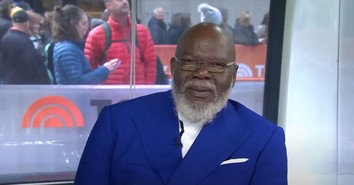The Downfall of Too Many Great Men

Sometimes the most remarkable men in the eyes of the world have besetting sins and flaws that make them and the people around them miserable. The great tragedy is that the men the world acclaims can often be hated and despised by those who know them the best.
This weekend I was finally able to watch Ken Burns’ documentary on the life of Ernest Hemingway, which was released earlier this year. Like everything Burns does, this look at the life of one of America’s greatest authors was beautifully put together and told in great detail. One of the things that struck me about Hemingway was that even though his literary genius is unparalleled, he produced a legacy of brokenness around him.
Like many men, Hemingway was his own worst enemy. Married four times, he left a trail of broken relationships with women and was the cause of at least one divorce among the women who would be called by his name. His children faced profound problems growing up, in many cases because of the dysfunction that surrounded them because of their father.
In many ways, Hemingway’s downward trajectory mirrors the downfall of many great men. They are esteemed in the eyes of the world, but they leave carnage around them. They should great promise, but they cannot seem to get out of their own way. Many men, especially those who possess pronounced gifts, struggle with these same vices.
Hemingway struggled with arrogance and pride. In his desire to be the best and to be regarded as the best, he was willing to mistreat people who cared about him. He pilloried Gertrude Stein and F. Scott Fitzgerald, even after their deaths and even though they helped him. He treated his wives and children as if they were but mere players in the story of his life, only existing to make him look better.
Like Hemingway, too many men deal with crippling pride. Pride blinds us to our own faults while making us experts on everyone else’s. It leads us to have an overinflated sense of importance and impatience with other people’s ideas. We end up using people and leaving them discarded in our wake without ever considering how we have hurt them.
Hemingway spent his life plagued by overindulgence that destroyed his mind, his body, and his soul. He drank constantly, even when it was clear that it was killing him. He could not say “no” to his sexual urges, and it led him to wreck his marriages and the marriages of others.
We live in a culture of self-indulgence, and it is killing us. We have more free time than previous generations and are spending more of that free time on ourselves than ever. If you don’t believe me, open up your settings and look at your screen time report. It probably tells the story of hours spent in mindless scrolling that could have been put towards serving others or growing personally. Men who could move mountains if they put forth the effort now spend their days staring at screens.
Unfortunately, we have also lost any sense of virtue in the realm of sex and sexuality. Many men indulge in vast amounts of free internet pornography. It is distorting their views of sexuality, harming their relationships with the women in their lives, and leading to a crippling load of guilt and shame. The inability of men to squelch their desires is going to affect their lives and those around them for decades to come.
If men are drowning in pride and self-indulgence, what are they to do? The answer lies in Paul’s second letter to the Corinthians. Paul described an incredible vision God allowed him to have. Then, to keep him from becoming boastful about the vision, God sent him a thorn in the flesh to keep him humble. Paul prayed three times for God to take the thorn away, but God kept the thorn there and told Paul that his grace was sufficient for him and that his power would be made perfect in Paul’s weakness.
From this, Paul learned a lesson that every man must learn. We are not strong when we are puffed up with pride and self-indulgent. We are at our strongest when we are honest about our weaknesses. When we know that we are finite, frail, apt to be wrong, and sinful, then we turn to the strength that only God supplies. When God is our strength, we stay humble. When we lean on his sufficient grace, we know that our self-indulgence never leads to peace and joy.
It’s one of the Bible’s wonderful ironies – you can’t be a great man until you know that only God is great. When you grapple with that and believe it from the heart, it builds a foundation that keeps you from falling.
The views expressed in this commentary do not necessarily reflect those of Christian Headlines.
Photo courtesy: Tim Marshall/Unsplash
Scott Slayton writes at “One Degree to Another.”
Originally published September 07, 2021.





